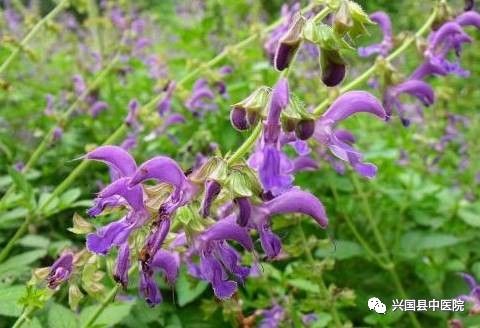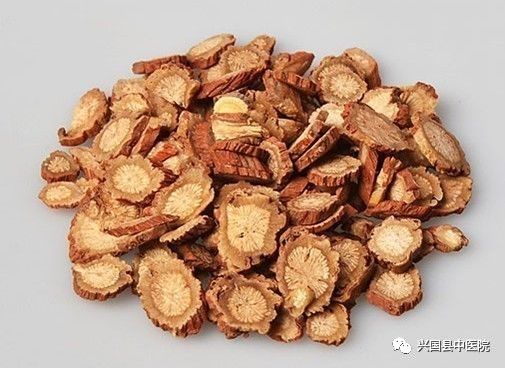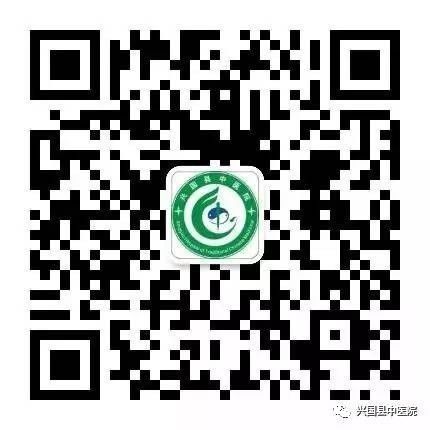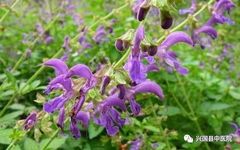Danshen, also known as: red sage, purple salvia, red root, etc. It has the effects of invigorating blood circulation, removing blood stasis, nourishing blood, calming the mind, cooling the blood, and reducing swelling; it is primarily used for treating blood stasis headaches, chest, flank, and abdominal pain, accumulations, irregular menstruation, dysmenorrhea, postpartum abdominal pain due to stasis, joint pain, contusions and swelling, vexation due to warm diseases, palpitations due to blood deficiency, sores, and toxic swellings, as well as skin conditions like eczema.
Danshen contains effective components such as diterpene quinones, including Danshenone I, II A, II B, cryptodanshenone, isodanshenone I, II, isocryptodanshenone, and Danshen new ketone. Pharmacological and clinical studies indicate that Danshen has effects such as dilating coronary arteries, improving myocardial ischemia, lowering blood pressure, regulating blood lipids, protecting liver cells from damage, and improving kidney function, along with various pharmacological activities including anti-inflammatory, anti-allergic, and antibacterial effects.

Danshen plant
Clinical Application Combinations:
Danshen combined with Huangqi (Astragalus membranaceus)—- tonifies Qi and nourishes blood, invigorates blood circulation and removes stasis, used in the treatment of coronary heart disease.
Danshen combined with Honghua (Carthamus tinctorius)—- invigorates blood circulation and removes stasis, relaxes meridians and unblocks collaterals, can treat myocardial fibrosis.
Danshen combined with Gouqi (Lycium barbarum)—- nourishes liver and kidney, nourishes blood and invigorates blood circulation, can treat hyperlipidemia.
Danshen combined with Tingliz (Descurainia sophia)—- invigorates blood circulation and removes stasis, clears the lungs and relieves asthma, used for treating bronchial asthma and pulmonary heart disease.
Danshen combined with Yujin (Curcuma aromatica)—- cools the blood and invigorates blood circulation, calms the mind, used for treating memory loss, insomnia, depression, and neurasthenia.
As a commonly used Chinese medicine, although Danshen has excellent and stable efficacy, it is still a medicine that can be toxic in certain doses. Practice has shown that Danshen can stimulate the gastrointestinal tract; long-term use may lead to varying degrees of loss of appetite and acid reflux.

Danshen herbal slices
Precautions for Clinical Application:
1. For individuals with gastrointestinal diseases, it is advisable to take Danshen with Chenpi (Citrus reticulata), Jineijin (Gallus gallus domesticus), or Bai Bian Dou (Lablab purpureus) to strengthen the stomach.
2. Patients with bradycardia may add Gui Zhi (Cinnamon twig) or Xie Bai (Allium macrostemon) to promote heart function.
3. Cancer patients requiring blood-invigorating treatment should avoid Danshen and may choose other Chinese herbs with anti-cancer properties, such as Quan Chong (whole insect), Wu Gong (centipede), She Tui (snake skin), E Zhu (Curcuma zedoaria), San Leng (Sparganium), Shui Zhi (leech), and Chuan Shan Jia (pangolin).
4. Danshen should not be taken with aspirin. Aspirin inhibits platelet aggregation and is currently a basic medication for treating coronary heart disease. Low doses of aspirin can be therapeutic, while high doses may prolong bleeding time or even cause bleeding. Patients taking warfarin should also be cautious, as taking Danshen may lead to bleeding.
5. Medications that should be taken separately from Danshen.
① Xin Ke An: Its injection mixed with compound Danshen injection can cause turbidity, affecting the efficacy of both medications.
② Atropine: can increase heart rate. When used with Danshen, atropine can block the blood pressure-lowering effect of Danshen, thus reducing its efficacy.
③ Vitamin C injection: Mixing vitamin C injection with Danshen injection can easily lead to redox reactions, resulting in decreased efficacy of both medications and causing turbidity in the solution.
④ Vitamin K: Vitamin K has hemostatic effects, while Danshen has anticoagulant and anti-platelet aggregation effects, which are opposing actions.
⑤ Vitamin B6, B1: The active substances in Danshen tablets can precipitate when used with vitamin B6 or B1, reducing the efficacy of the medication. Clinical use is prohibited.
⑥ Calcium agents: Calcium agents such as calcium chloride, calcium lactate, and calcium gluconate can form tannate precipitates when used with Danshen, which are not easily absorbed.
6. Avoid consuming milk and soybeans while taking Danshen tablets. Danshen tablets are commonly used for treating coronary heart disease. Recent studies by some experts suggest that taking Danshen tablets should not be done simultaneously with milk and soybeans, as this may reduce the medicinal value of Danshen. The mechanism is that the hydroxyl and ketone oxygens in the molecular structure of Danshen can form complexes with calcium, magnesium, and iron ions abundant in milk and soybeans, thus reducing its efficacy when taken together.
往期精彩
Ganzhou Traditional Chinese Medicine Hospital and Xingguo County Traditional Chinese Medicine Hospital collaborate to carry out “Serving the People to Assist Poverty Alleviation Health Action” free clinic activities
[Preventive Treatment] What is your constitution? The Xingguo County Traditional Chinese Medicine Hospital’s TCM constitution identification system tells you
Enhancing medical sharing services in the medical alliance, this is how Xingguo County Traditional Chinese Medicine Hospital operates
Xingguo County Traditional Chinese Medicine Hospital is in the newspaper~
Xingguo County Traditional Chinese Medicine Hospital conducts diabetes health knowledge promotion activities
End

If you find this article helpful, please click the upper right corner to send it to friends or share it on your moments. Your support and encouragement are our greatest motivation. If you like it, please follow us~

Long press the QR code
Follow us
Editor: Huang Zhixing
Editor: Guo Qian
Production: Guo Qian

